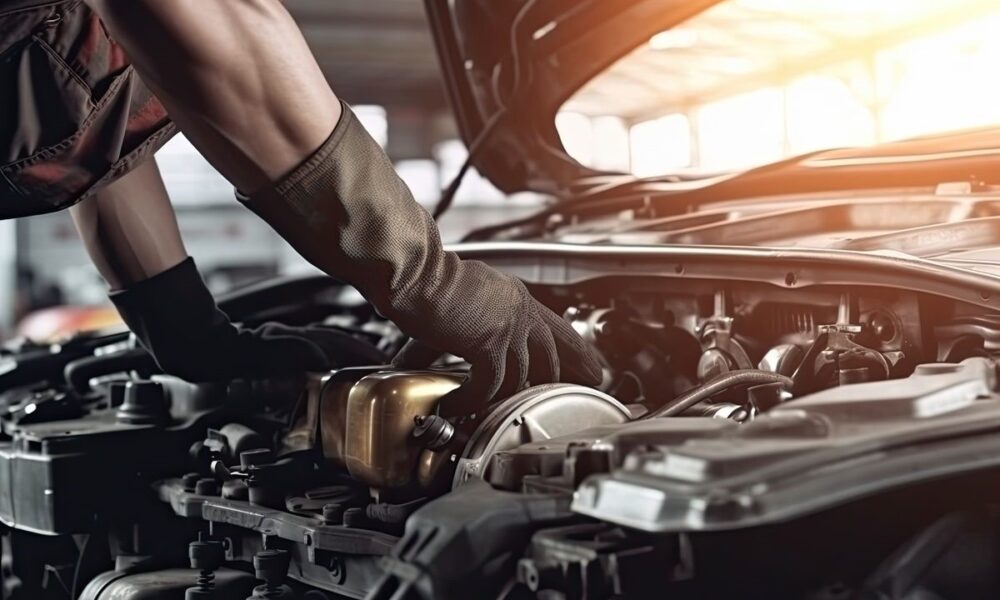How Car Engine Swaps Affect Brake Master Cylinder Performance

Hey there, car lovers ! If you’re getting into car improvements , you might have thought about doing an engine swap. This is one of the most exciting improvements you can make. Imagine changing your engine for a more powerful one, giving your car a whole new life ! But while the idea of more speed and power is thrilling, there’s something important to think about: how these changes affect your braking system.
At TCA Auto Repair, how great it feels to press the gas and feel that rush. But before you dive into an engine swap, it’s essential to consider how it might impact your brake master cylinder. This part is essential for keeping your car safe, and knowing how it works can help you avoid serious issues later.
What is the Brake Master Cylinder?
Let’s break it down. What does the brake master cylinder do? Think of it as the control center for your car’s brakes. When you press the brake pedal, the master cylinder changes that pressure into hydraulic force. This force activates the brakes at each wheel, so you can stop safely. If the master cylinder is working well, your brakes will be smooth and reliable. But if it’s not, you could have a rough ride.
Keeping your brake system in good shape is very important, especially when you’re planning a big change like an engine swap. You don’t want to upgrade your engine and find out your brakes can’t keep up!
Why Do People Swap Engines?
So, why do car Lovers want to swap engines? There are many reasons! For many, it’s about the excitement of getting more power. Whether you want to win races or just want a bit more kick for your daily drive, a new engine can make a big difference.
Some people change a small engine for a bigger V6 or V8, while others might choose a turbocharged engine. It’s really satisfying to drive a car that’s uniquely yours, especially with a powerful engine under the hood. But while these vehicle performance upgrades are thrilling, you also need to consider how everything else in your car will work together, including the brakes.
How More Power Affects Braking
Now, let’s talk about what happens when you swap in a more powerful engine. One of the biggest changes is the boost in engine power and Turning force. You might feel like you’re driving a new car, which is super exciting! But with that extra power comes the need to ensure your brakes can handle it.
If your brake master cylinder isn’t Made for the new engine, you might face problems. For example, if you notice your car shakes when braking, that’s a sign something isn’t right. The master cylinder may struggle to keep up with the new engine’s demands, leading to longer stopping distances and making your drive less safe.
Changes in Weight Distribution
Another thing to think about when swapping engines is how it can change your car’s weight. If you’re putting in a heavier engine or moving it around, it can affect how your car handles.
When the weight shifts, your brake master cylinder may have to work harder to make sure the brakes work well. If the weight changes too much, you could have uneven brake wear or less effective braking. It’s important to consider how the new engine will affect your car’s balance and braking system.
Compatibility with Brake Parts
When you swap engines, you need to make sure the new engine works well with your existing brake parts. Not all engines fit nicely with the same braking systems, and this can cause issues.
If the new engine doesn’t work well with your current brakes, you could run into serious safety problems. That’s why having a skilled brake repair mechanic is so important. They can help you find any compatibility issues and suggest upgrades to keep everything safe.
Upgrading the Hydraulic System
With an engine swap, it’s often necessary to upgrade the brake master cylinder and the entire hydraulic system. This is to ensure your brakes can handle the new engine’s demands and keep working well.
Upgrading to a larger or better master cylinder can improve how your brakes respond, making your driving experience safer and more enjoyable. If you’re not sure how to make these upgrades, the team at TCA Auto Repair is here . They have knowledge to make sure your vehicle performs safely after your engine swap.
Don’t Forget the Brake Booster!
Let’s also talk about the brake booster! This part works with the master cylinder to help you stop better. If your engine swap changes your engine type, it can also affect how the brake booster works.
You want to make sure everything works together to keep your brakes effective. A complete check of your braking system after an engine swap can help identify any needed changes or upgrades, ensuring you can stop safely.
Wrapping It Up: Your Engine Swap Path
In short, while engine swaps can be an exciting way to boost your vehicle’s performance, they require careful thought about how they impact the brake master cylinder and overall braking performance. From increased power to changes in weight distribution, there’s a lot to consider when modifying your car.
As you plan your upgrades, don’t forget to consult with professionals who understand the ins and outs of vehicle performance upgrades. At TCA Auto Repair, they are here to help you navigate these changes and keep your car safe and reliable. If you’re thinking about an engine swap or having issues like a car that shakes when braking, feel free to reach out. Your safety is top priority, so you enjoy every ride!





